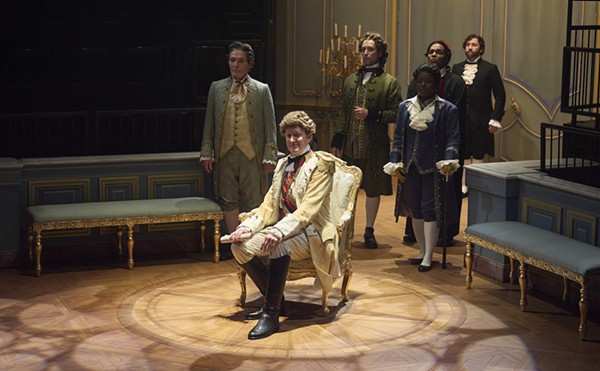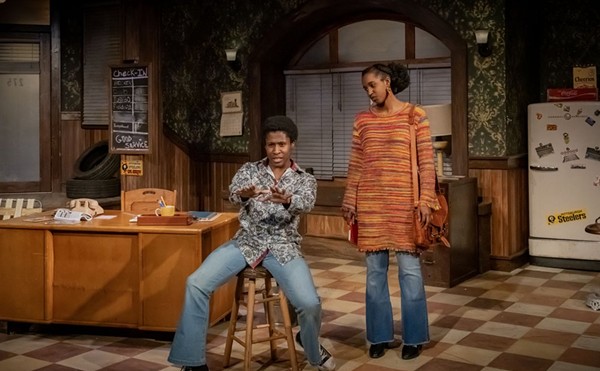That scenario is not only a fairly accurate description of a Dick Cheney wet dream, it's also the core of the play Antigone, penned by Sophocles some 2,500 years ago and updated in a translation by Seamus Heaney called The Burial at Thebes. Now at Ensemble Theatre, this tale of a sister's devotion to her dead brother and her tragic conflict with her uncle, King Creon, has many echoes that resonate within the current political milieu. And while this version is reasonably brisk and easy to access, it's also fairly uninspired in any theatrical sense.
Creon's two nephews, pitted against each other in war, have died. But the king gives only one brother a proper funeral, while the "traitorous" corpse has been left outside as Vulture Chow. This doesn't sit well with Antigone, sister of both men, and she tosses a handful of dirt on her brother in a gesture of ritual burial. This immediately qualifies her for the death penalty, since, according to the neo-Creon, "You're either with me or you're against me."
After some futile arm-twisting, Antigone is hustled off and sealed in a cave. Before Creon's mind can be swayed by the wise Tiresias and the Theban Chorus, she hangs herself and is promptly followed into death by a couple more family suicides. Although this body count is paltry compared to carnage created by the similarly black-and-white argument for the Iraq War, the allegorical point is made.
Heaney's language is frequently lively and muscular, and there is refreshing wit in the way a couple characters relate to the king. But overall, this effort directed by Lucia Colombi feels a bit stiff and arthritic. Robert Hawkes battles valiantly to make Creon nasty, even though his Don King headdress doesn't help much, and Heather Corwin handles her duties as Antigone with passion and purpose.
But the play is tilted out of balance by the one-man Theban Chorus, limned by Scott J. Miller, PhD. This gentleman's reference to his educational attainment in the program's cast list -- simultaneously inappropriate, obnoxious, and slightly pathetic -- is bad enough. But the good doctor of philosophy's scenery-chewing and spittle-spraying performance does not comport pleasantly with the other players, who seem to be acting in a parallel (and much better) production.
Let us hope that Dr. Miller is not starting a trend here, and that future productions will not feature actor listings informing us about Jane Doe, BA, and John Smith, DDS.













